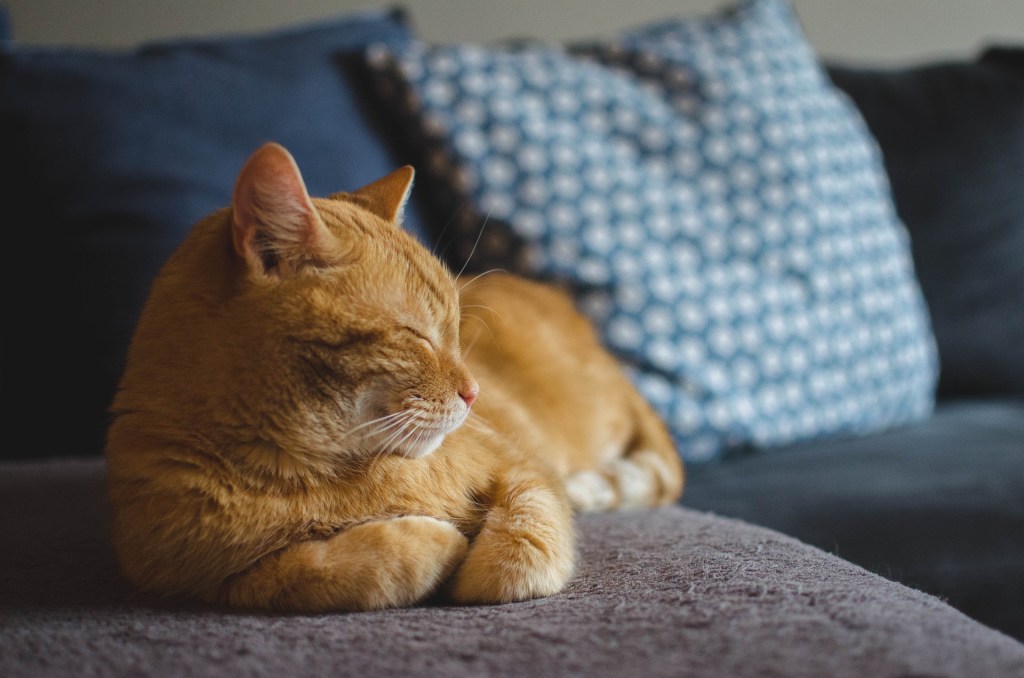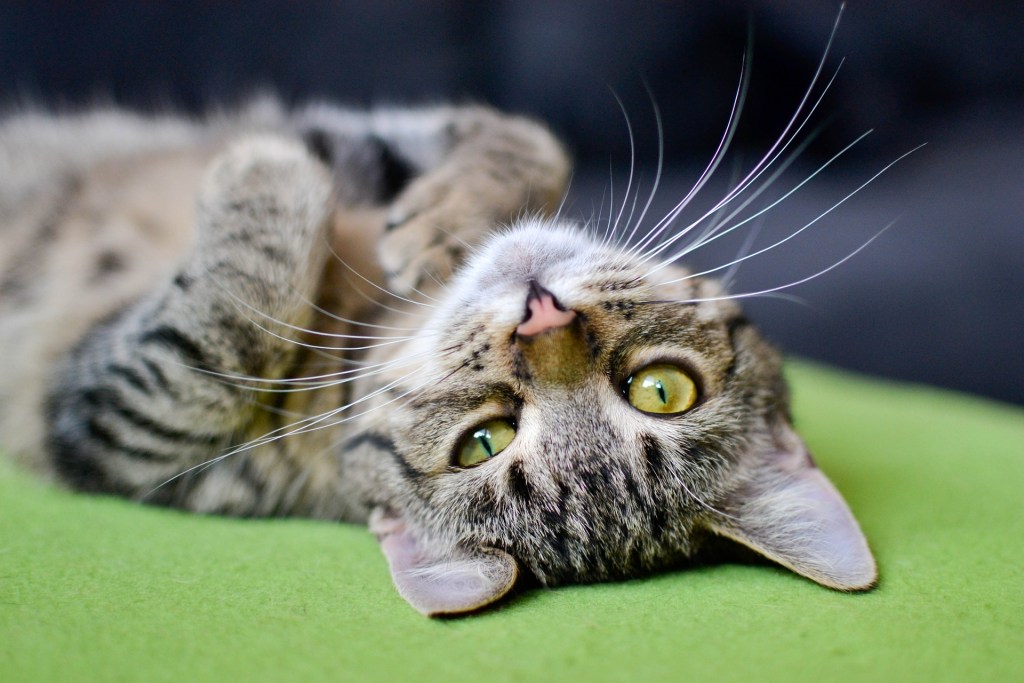If your cat is stressed, having disagreements with another pet in the house, or otherwise just not coping well, cat pheromones could help reassure and comfort him. Pheromones are available in many forms, but choosing a cat-calming diffuser makes it incredibly easy to ensure that they’re constantly supplied to your cat for the best results. Pheromones add another layer of comfort to your home, complementing any efforts you’ve already taken to reassure your cat and minimize his stress. If you haven’t yet bought a cat-calming diffuser, it might be time to make the purchase to help your cat.

What are cat pheromones?
To understand how a calming diffuser works, you need to understand what cat pheromones are. Pheromones are scent hormones that send messages to cats to comfort and calm them. (Dog pheromones work in the same way, but dog pheromones won’t work for cats, and vice versa.) As pheromones are emitted, cats may feel comfort similar to what they felt when they were kittens and were cared for by their mother.
Pheromones help reassure cats, and that can be helpful in many situations. If your cat is stressed by the addition of a new family member or pet, has recently had to move to a new home, or is experiencing anxiety for another reason, adding pheromones to the home can make it a more reassuring environment for your cat.
Pheromones are delivered in multiple forms, including collars, wet wipes, and sprays. Some popular options include the Feliway spray or diffuser and the Relaxivet diffuser. While any pheromone delivery form can be effective, diffusers offer specific advantages over some of the other methods.
How does a cat-calming diffuser work?
Cat-calming diffusers contain synthetic ingredients that replicate the pheromones that cats naturally release. While a spray or a wipe will last only so long, diffusers gradually release pheromones, so your cat continuously benefits from them. This can help make your home a more calming place for your cat. It also means that you don’t have to add “use or release pheromones” to your daily to-do list, so you save time, which you can spend with your cat in some quality bonding. It also means you won’t forget to use the pheromones, much to your cat’s benefit.
Diffusers plug into a traditional outlet and use electricity to heat up. The liquid they contain then evaporates, gradually releasing pheromones into the air. You won’t smell the pheromones, but your cat will receive the soothing, reassuring messages they release.

How to use a cat-calming diffuser
- To get the maximum benefits from a diffuser, it’s important to follow the manufacturer’s directions.
- Typically, a diffuser is recommended for up to a certain square footage. A large home may benefit from multiple diffusers, but strategically locating them is also important.
- You’ll need to place the diffuser wherever your cat spends lots of time. If your cat is displaying unwanted behaviors in certain areas of the house, like scratching furniture or marking walls, then it’s a good idea to place a diffuser in those areas.
- After installing your diffuser, you’ll need to monitor it to see when it needs to be refilled. Most diffusers are available with refill packs, saving you the expense of repeatedly buying new diffusers. Stock up on a few refills ahead of time so you have pheromones when Kitty needs them. You might also set calendar reminders based on your diffuser’s typical usage.
Calming diffusers can help support your cat through stressful situations, and they’re particularly helpful in multi-cat homes where your pets are feeling out of sorts. While pheromones can help comfort and reassure cats, they won’t fully resolve every issue or stress that your cat feels. They’re a supportive aid that’s best paired with other steps, like gradually introducing new cats to the home, giving your cat a place to retreat to where he feels secure and safe, and making an effort to minimize your cat’s stress when possible. However, diffusers are one more way you can make your home environment ideal for your cat.


